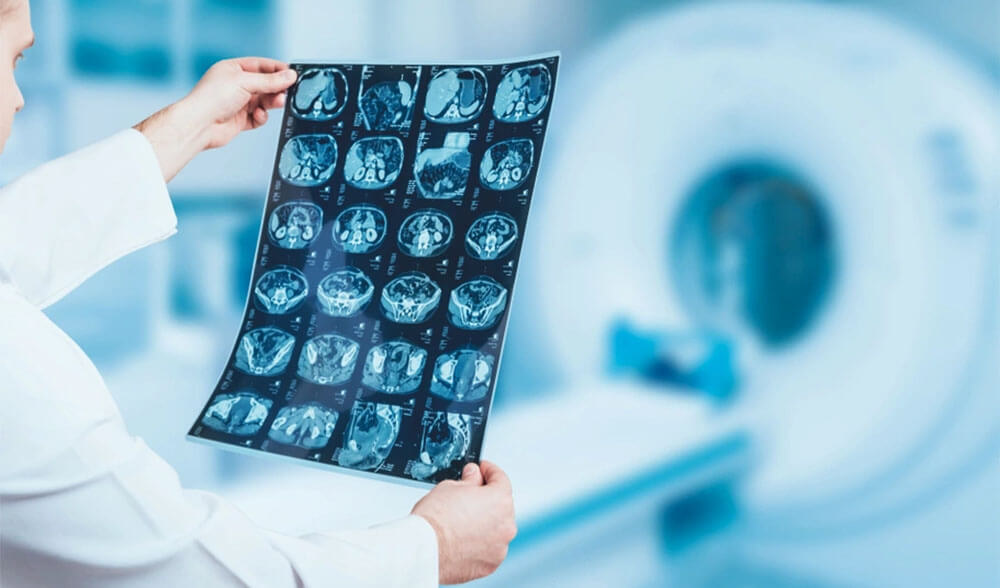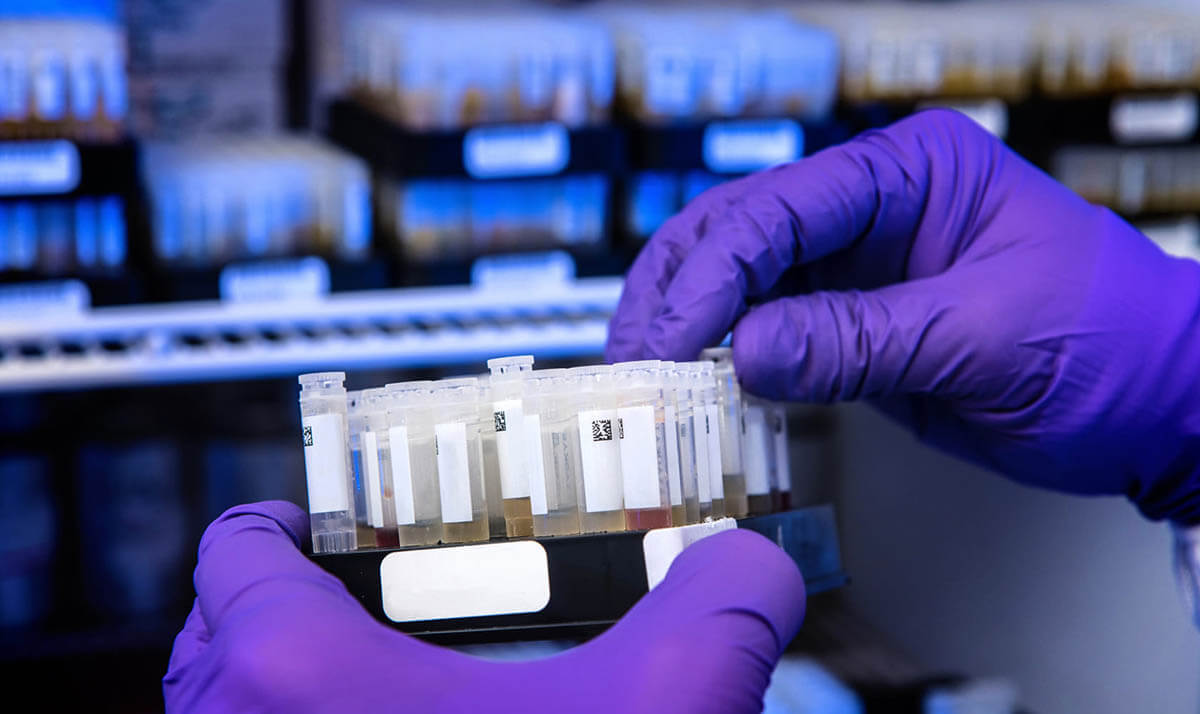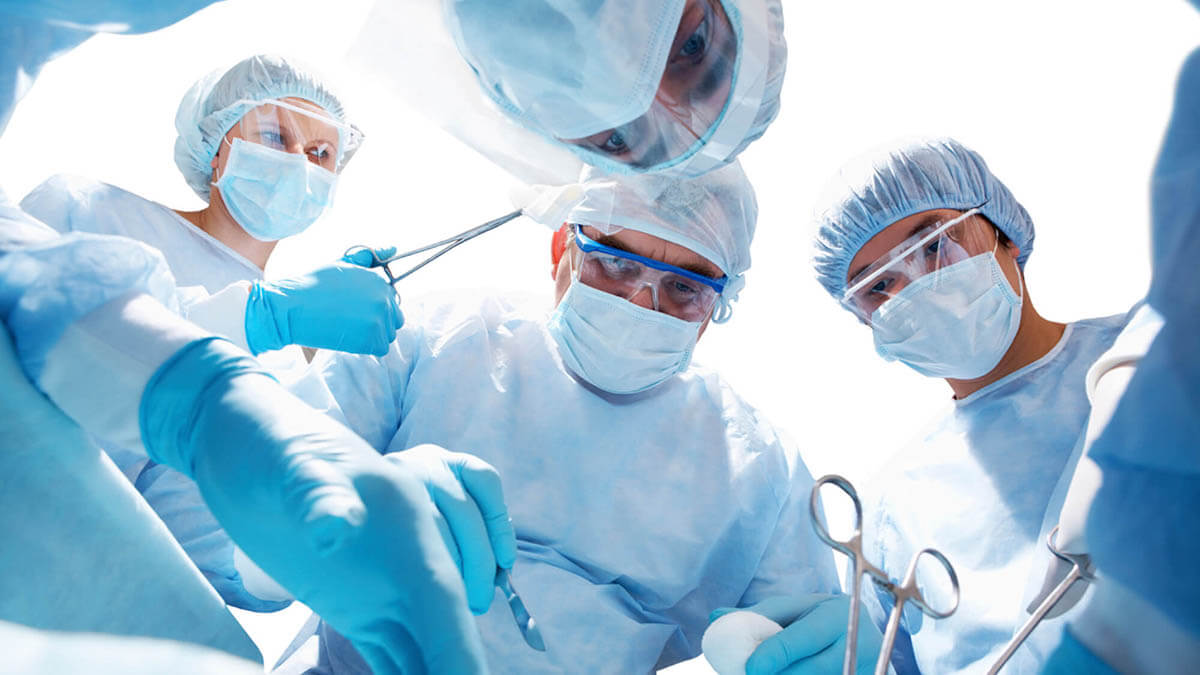Calls for Ukraine
Calls for Europe
Calls for USA

Teratoblastoma and teratoma are tumors that develop from embryonic tissue and are most often found in the first years of life. Teratoma can be either malignant or benign. Teratoblastoma is a malignant tumor that can occur in the prenatal period, when for some reason tissue formation is disrupted, or a neoplasm of this type can be diagnosed during malignancy of a teratoma. In other words, teratoblastoma is a rare and dangerous type of teratoma.
Teratomas and teratoblastomas have a characteristic localization. Most often they develop in the testicles, ovaries, mediastinum, and retroperitoneum. Teratoblastomas are characterized by rapid growth with early metastasis. Therefore, it is very important to get to good specialists who treat this disease as early as possible, who will be able to accurately diagnose and choose the most effective tactics to combat the disease.
MedTour will help you find the best clinics for this profile and get to leading doctors.
Neoplasms of this type arise when embryonic development is disrupted. Why exactly such disorders appear is still unclear, but it is believed that they can be triggered by unfavorable factors that affect the female body during pregnancy:
Teratoblastomas are characterized by the presence of immature embryonic tissue, as well as extraembryonic tissue (for example, placental tissue), which can be combined with fragments of mature tissue. Teratoblastoma may include dermoid cysts, calcifications, ectoderm and mesoderm cells.
When a tumor of this type metastasizes, it can also contain a combination of immature and mature tissue.
Symptoms of a tumor can be varied and depend on where exactly the tumors are located. Typically, symptoms occur when the tumor begins to grow and put pressure on adjacent tissues and structures. Common symptoms include pain in the area where the tumor is located, weight loss, increased weakness, and anemia.
Teratomas and teratoblastomas can grow in different parts of the body. Depending on the location, teratomas and teratoblastomas are divided into types. The most common ones include:
Testicular teratomas in boys are detected more often before the age of 2 years. However, as a rule, they have benign characteristics. Testicular teratoblastoma is a rare but aggressive testicular tumor that can be diagnosed in adolescence.
In the early stages, the disease usually goes unnoticed. Then the tumor begins to be palpated as a lump, later the testicle becomes noticeably enlarged, and discomfort and pain in the lower abdomen may occur. There are other types of testicular tumors that produce similar symptoms, but may differ in treatment strategy, so it is important to accurately determine the characteristics of the tumor.
Ovarian teratoblastoma is a neoplasm that is localized in the ovaries, but can grow, occupy large spaces in the small pelvis, compress internal organs, and cause pain in the abdomen.
In children, malignant ovarian teratoblastomas are diagnosed more often than teratomas. They may consist of multi-chamber cysts, which are interspersed with fragments of embryonic tissue. Ovarian teratoblastoma can metastasize to the lungs.
Mediastinal teratomas are usually localized in the anterior part of the mediastinum. They often remain invisible for a long time, but in adolescence they begin to actively grow and put pressure on nearby large vessels, lungs, and heart. This leads to the appearance of characteristic symptoms: chest pain, cough, heart rhythm disturbances, and shortness of breath.

Teratomas and teratoblastomas in children can be detected in different organs. Often neoplasms of this type are detected in the first years of life, but can also be diagnosed in adolescence or right at birth. For example, sacrococcygeal teratoma or teratoblastoma can reach large sizes even in the womb, so that it can create difficulties during childbirth. Such a tumor may contain various tissues, for example, fragments of intestines, liver tissue, tendons.
Diagnosis of neoplasms of this type requires a comprehensive examination, which is usually carried out through various studies. The most commonly used diagnostic methods are:

The latest methods for diagnosing various types of tumors include laboratory genetic testing. Today it is possible to make molecular genetic diagnostics, which can identify mutations in tumor cells and determine the type of cancer. This is important additional data about the tumor, which makes it possible to more accurately determine the characteristics of the tumor. After which it will be possible to select drugs that will specifically target tumor cells and be more effective.
Molecular genetic testing for cancer can be done in specialized laboratories, where you can choose a specific panel that identifies certain characteristic mutations or do extensive genome sequencing.
You can learn more about the possibilities of genetic diagnostics and other types of examinations in different countries during a free consultation with the MedTour coordinating doctor. Send us a request using the special form or call us to receive the information you are interested in.
There is no specific prevention of the appearance of teratomas and teratoblastomas. To reduce the likelihood of this type of tumor occurring, it is necessary to avoid exposure to factors that may play a provoking role. In order to detect a tumor in a timely manner, it is necessary to closely monitor your health, undergo regular preventive examinations and consult a doctor at the first suspicious symptoms.

The main treatment method for these tumors is surgical removal of the tumor. If a benign teratoma is diagnosed, it will be enough to completely remove the tumor to restore health. For malignant teratoblastomas, in addition to the tumor, nearby tissues and lymph nodes are usually also removed. If the tumor is too large and cannot be completely removed, cytoreductive surgery may be performed, during which the surgeon removes part of the tumor. This will not lead to a complete recovery, but it will help alleviate the condition.
In leading medical centers using the latest surgical techniques, operations can be performed using minimally invasive laparoscopic, thoracoscopic, and endoscopic techniques. Robotic surgery can also be used, which makes it possible to remove tissue with maximum precision.
In the treatment of malignant forms, radiation therapy, chemotherapy, hormonal therapy, and immunotherapy can additionally be used. If an accurate diagnosis has been made to determine the histological type of the tumor, targeted therapy can be prescribed, in which the drug acts specifically on cancer cells without having a negative effect on healthy tissue. Treatment tactics are selected individually, taking into account where the teratoblastoma is located, whether there are metastases, which organs border the tumor, etc.
You can receive expanded information about treatment options in different countries as part of a free consultation with a MedTour coordinating doctor.
Prognosis largely depends on the type of tumor and its characteristics. For benign teratomas, the prognosis is usually positive. If we are talking about teratoblastomas, further developments depend on the stage of the disease. If doctors are able to completely remove the tumor before metastases appear, the prognosis is generally favorable. But even in difficult and neglected situations, with the right approach and well-chosen treatment, there is a chance to restore health.
If you contact advanced clinics that specialize in the treatment of teratoblastomas, the likelihood of a favorable outcome will significantly increase. The Medtour platform cooperates with the best medical institutions in different countries of the world. We will help you choose a clinic that employs leading specialists in this medical field and uses the most effective treatment methods.
You can independently see the list of leading clinics for the treatment of teratoblastoma on our website. More detailed information can be obtained from the MedTour coordinating doctor.
To find a doctor who has extensive experience in treating teratomas and teratoblastomas and can choose the best treatment options for you, contact us. The MedTour coordinator will tell you about the best specialists in this field, provide information on prices for treatment from different doctors, and help you choose the best option that will suit your medical needs and personal requests.
Please rate the work of MedTour
